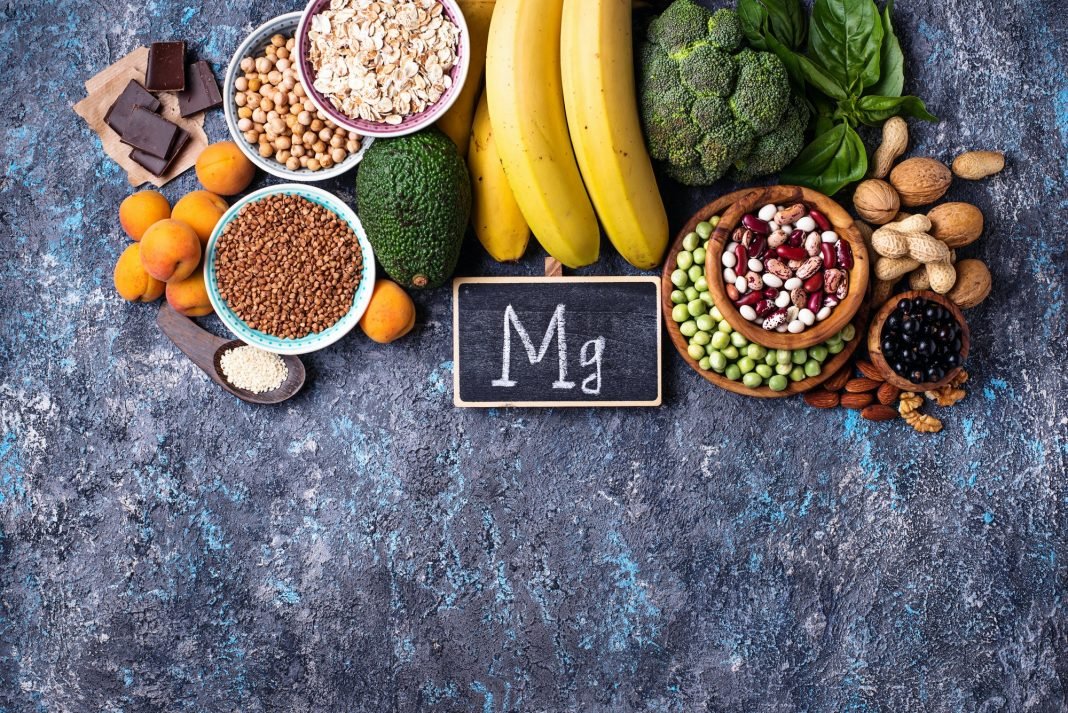Magnesium how does it help?
Magnesium plays a role in over 300 enzymatic reactions within the body, including the metabolism of food, synthesis of fatty acids and proteins, and the transmission of nerve impulses ” says Megan Ware RDN LD at MedicalNewsToday.(1)
Using food sources for your daily nutritional needs should be your prefered method to attain a healthy balanced diet and lifestyle.
It can be found in bran, dark chocolate, brazil nuts, sprouted alfalfa seeds, wheatgrass, dried figs, African mango, almonds, cashews and molasses it can also be found in beetroot and bee pollen.
Proven Health Benefits
Magnesium Contributes to
- Energy-yielding metabolism
- A reduction of tiredness and fatigue
- Maintaining healthy teeth and bones
- A healthy nervous system
- Muscle function
- Protein synthesis
What are the Benefits
1) Energy-yielding metabolism
A deficiency may be the cause of tiredness and fatigue, getting enough Magnesium in your diet could prevent this.
This may also be of use to those who take part in sport and want to ensure the proper functioning of their energy metabolism to maximise performance.
2) A reduction of tiredness and fatigue
It is involved in the reduction of tiredness and fatigue. People suffering from chronic fatigue syndrome usually have low Magnesium levels. Potassium may also help in this matter.
3) Maintaining healthy teeth and bones
It is needed to maintain healthy bones. If there is a Magnesium deficiency, bone structure may be affected, so supplementing with Calcium may help to avoid these bone conditions. Bcaa’s may also help to strengthen bones.
4) A healthy nervous system
Magnesium helps with the function of the nervous system This means it may help in times of stress and low mood. It is named the ‘anti-stress mineral’ because of its beneficial effects on the nervous system and mental attitude. Also according to research, a magnesium-restricted diet has been shown to induce anxiety and depressive-like behaviour in humans (2). So, therefore, magnesium should also be recognised as an essential mineral required for the function of the many enzymes in the gut. However, as emphasised by hyperbiotics.com, “having the right makeup of enzymes is crucial for optimal digestion, but having the right microbes deep within your gut is equally as important”. (3)
5) Muscle function
It also helps with healthy muscle function. You need the correct amount of Magnesium for the production of energy and the right function of muscle when training. It works well with Calcium for the proper contraction and relaxation of muscle fibres. Magnesium is often taken for muscle spasms (cramp) which may be caused by a deficiency which is more common than believed. (4)
It is also thought to increase the absorption of creatine into the muscles allowing for better performance.
6) Protein synthesis
It could help with protein synthesis. Avoiding a deficiency may help maximise muscular performance during training. Correct protein synthesis is needed for the muscle to grow and repair, which means it may be beneficial to anyone with these needs.
Magnesium synergy and works well with
- Calcium for bone health as it is needed to maintain healthy bones
- Zinc for bone health, muscle building and recovery – Zinc is necessary to maintain healthy bones, Zinc is also essential for the correct breakdown and absorption of the macronutrients
- Vitamin B complex for stress and anxiety
- Valerian for insomnia-related symptoms, as well as muscle cramps and spasms.
- Lavender Essential Oil for muscle relaxation at night time
- Boron may contribute to stronger bones
How much magnesium do I need?
According to the UK National Health Service, The amount of magnesium you need is:
- 300mg a day for men (19-64 years)
- 270mg a day for women (19-64 years)
You should be able to get all you need from your daily diet. (5)
Some things to consider
If you suffer from kidney disease, you should not take magnesium supplements without consulting a doctor.
Resources:
Last accessed online 18/04/2020
- https://www.medicalnewstoday.com/articles/286839
- https://www.ncbi.nlm.nih.gov/pubmed/25690713
- https://www.hyperbiotics.com/blogs/recent-articles/enzymes-and-probiotics-partners-in-digestion
- https://www.ncbi.nlm.nih.gov/pmc/articles/PMC2146789/
- https://www.nhs.uk/conditions/vitamins-and-minerals/others/#magnesium







